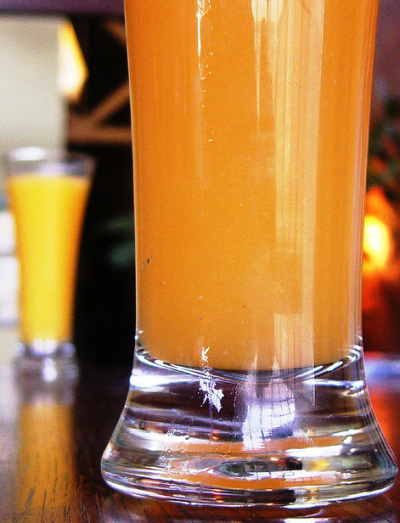Fruit juice and health drink sales boom despite health concerns, Key Note
Across the category sales grew by 6 per cent to a value of £4.1bn in 2010, said Key Note, which it said was a “particular relief” for the industry, following a fall of 4.3 per cent the year before.
Key Note suggested that heavy discounting was perhaps a feature of a market - dominated by multinational brands such as PepsiCo and Coca Cola - in 2009, given that output volumes that year fell at a lesser rate than market value.
However, Key Note said discounting seemed to have fallen off in 2010 as the economic situation stabilised.
The research company split fruit juices and health drinks into 3 main sectors for the purposes of its report: fruit juices (100 per cent pure juice) with a 43 per cent UK market share and fruit drinks (juice content of below 99 per cent) 38.5 per cent.
Energy and sports (primarily isotonic) drinks accounted for an 18.5 per cent sector share, also according to 2011 British Soft Drinks Association/Key Note figures.
Key Note's report excluded ‘health market’ products such as botanicals and energy drinks, most carbonates, bottled water, milk-based drinks and concentrated squashes and cordials.
Lucrative, permanent sector
Energy drinks bucked the downward trend during the recession, said Key Note, growing a considerable amount over the last 5 years to post sales of £550m in 2010.
“The sector’s success was once thought to be a temporary fashion. However, it has now established itself as a lucrative, permanent sector,” the firm said.
Energy drink market leader Red Bull faced increased competition from Relentless and Rockstar, Key Note said, while US brand Monster was now the second bestselling 500ml brand in the UK.
“Energy drinks are increasingly becoming the staple of many people’s drinks consumption,” said Key Note, “and as such are less and less regarded as a fashion or a phase”.
More than 100 ‘shot’ format products had been launched over the past 5 years, said Key Note, usually in 60ml quantities, but with as much caffeine content as regular-sized drinks.
Health disadvantages
Discussing energy drink concerns, Key Note said, “Drinks with high amounts of caffeine continually receive bad press coverage, and other ingredients such as taurine, are known to be bad for health in the long term."
Fruit juices had benefited greatly from the UK health service’s 5-a-day initiative, Key Note said, while consumers saw them as an easy and tasty way to consume fruit and vegetables, despite some concerns about a relatively high sugar content.
Juices would remain the largest industry sector, Key Note predicted, adding that smaller firms and brands had generally performed better in this area, and in health drinks, than in multi-national centred carbonates.
But Key Note said that it also expected sports and energy drinks to increase overall market share via ‘juice’ and ‘shot’ versions in particular, although it warned that these products could suffer due to health concerns.
However, one problem across the fruit juice and health drinks market was the ever-increasing buying power of the leading supermarkets, the Key Note suggested, with producer margins squeezed.
“Further to this, manufacturers must discount products heavily if there has been poor weather, resulting in slow sales throughout the summer,” said Key Note.
Nonetheless, Key Note said it expected relatively stable cross-sector growth in the next 5 years, especially during the London Olympic year in 2012. The firm predicted that the overall market would be worth £5.33bn in 2015.















